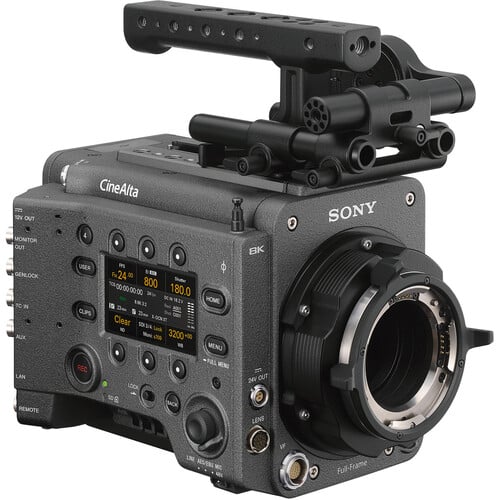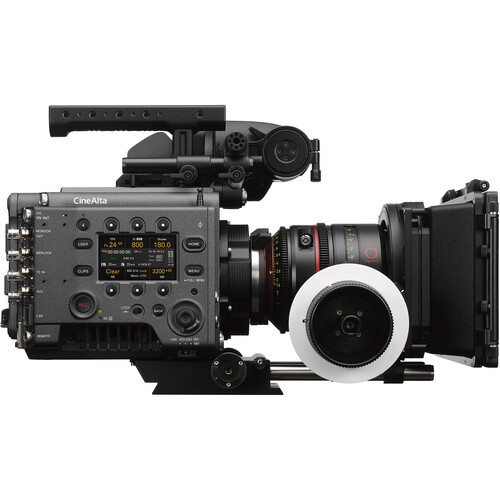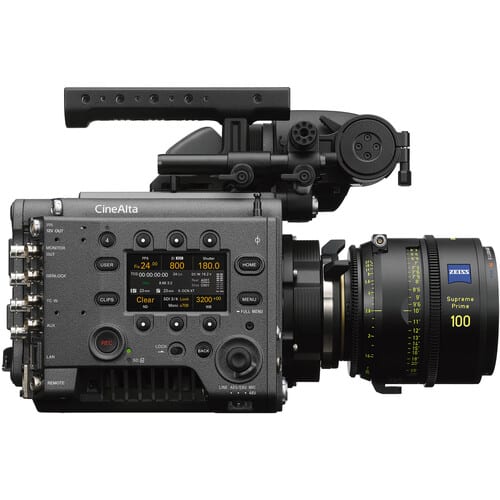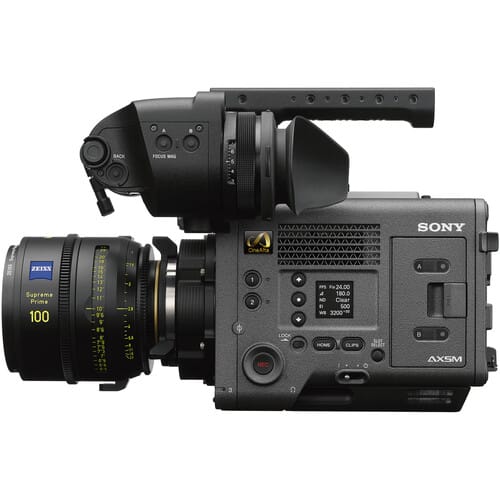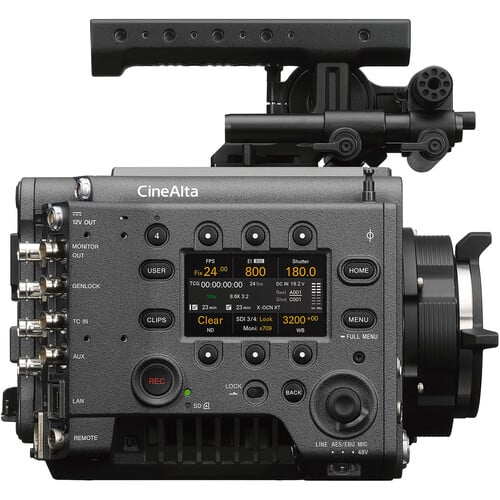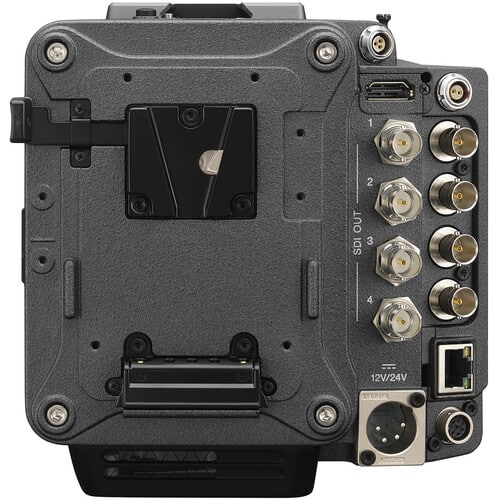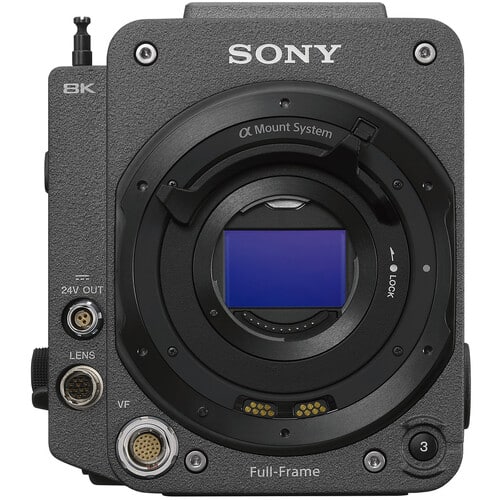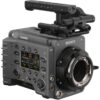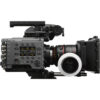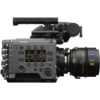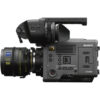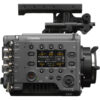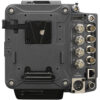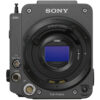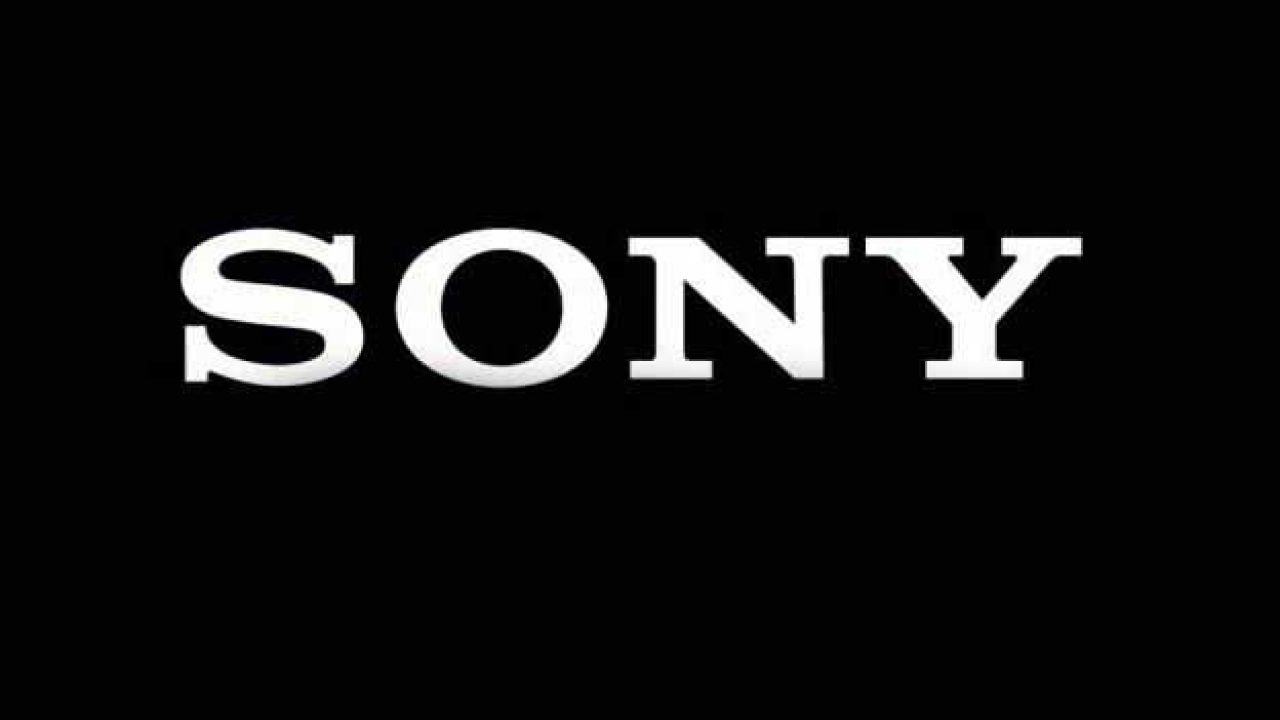Sony VENICE 2 Digital Motion Picture Camera (8K)
Out of stock
- X-OCN Internal Recording
- 4K ProRes 4444/422HQ Internal Recording
- Interchangeable CMOS 8.6K Sensor Block
- 16 Stops of Dynamic Range,
- 800/3200 Base ISO Range
- Removable PL Mount, Cooke /i Protocol
- Sony E-Mount with Electronic Contacts
- 8 x Integrated ND Filters Plus Clear
- Integrated Assistant-Side Info Screen
₹6,500,000.00
Best Buy ₹6,370,000.00
Free Shipping across India
Have a question? Ask Us Chat | Email | Call
Out of stock
VENICE 2
Full-frame digital cinema camera with internal X-OCN recording and choice of 8K and 6K sensors.
Trusted Creative Partner
VENICE 2 is a cinema camera created by and for the cinematographer. The camera comes with one of two full-frame image sensors, each offering exceptional picture quality. Thanks to new internal recording capabilities, users can capture even more colours and detail within the compact body they already know.
Remarkable Images
VENICE 2 offers a choice between 8K and 6K sensors, both of which boast incredibly wide latitude and gamut. Filmmakers have greater freedom of expression in grading than ever before, with either 16 or 15+ stops of latitude and exquisite colour rendition.
Simple and Intuitive
Operators need to know their camera is reliable and usable, especially during demanding shoots. VENICE 2 features simple menu navigation and connectors arranged to make life easier on set. With a durable, compact build, the camera is fast to set up for handheld or mounted shooting, so you can focus on filming, not the camera.
36x24mm Full-Frame Sensor for Cinema
VENICE 2 features one of two 36x24mm full-frame image sensors, designed specifically for the demands and performance of high-end cinematography. Each offers remarkable sensitivity, latitude and colour rendition, and because the sensor blocks are interchangeable, users can easily switch between sensors—without any extra firmware—and can even use the sensor from their original VENICE. The new 8K sensor can capture images up to a maximum resolution of 8640 x 5760, while the established 6K sensor offers up to 6048 x 4032. Both offer powerful oversampling for incredible 4K images.

Full-Frame full width 36 mm 8K and 6K
In full-frame, you can use the full width of the sensors (6048 or 8640 pixels) for widescreen spherical 2.39:1 or Large Format Scope. Full-Frame can be used creatively in a number of ways – for example, to allow for extra shallow depth of field or super-wide shooting.
Super35 Anamorphic desqueeze
For anamorphic shooting and production, a variety of desqueeze formats are supported enabling an even greater creative choice of lenses.
Super35 17:9 and 16:9
These popular imager sizes have native support in VENICE 2, and the 8K sensor makes it possible to capture 5.8K footage in these modes. Current Super35mm PL mount lenses can be used as well.

8.6K sensor imager modes

6K sensor imager modes
Phenomenal Latitude
VENICE 2’s 8K sensor has an exceptional 16 stops of latitude, while the 6K sensor boasts 15+ stops of latitude. This means that both imagers can deliver phenomenal images with very little noise, in conditions that range from searing sunlight to almost no light. VENICE 2 also excels at High Dynamic Range imaging, allowing for unprecedented creative freedom in grading.
More Colours for More Expression
VENICE 2 can exceed the BT.2020 colour space, with a colour range wider than DCI-P3. This means it can beautifully reproduce the true colour of the scene in front of your lens. The camera also provides a broad palette in the grading suite, using the established workflow of Sony’s S-Log3 and Ultra-wide Colour space, S-Gamut3. Plus, VENICE 2’s 6K and 8K sensors match colours almost perfectly, making your grading experience even better.
High Frame Rate
VENICE 2 can shoot at speeds of up to 120fps at 4K and 90fps at 6K, when using the 6K sensor. In combination with an anamorphic license, it also allows shooting at speeds of up to 75fps at 4K 4:3 and 72fps at 4K 6:5. With the 8K sensor, VENICE 2 can achieve up to 72fps at 8.2K and 120fps at 5.5K.
Fast Shutter
Jello effect is something we don’t need when filming. VENICE 2 has high speed readout sensors which minimizes the jello effect that are typical with CMOS sensors.
Virtual Production made simple
Up to 8K recording, 16-bit colours and a very fast sensor readout speed allow cinematographers to focus on the art of shooting virtual sets rather than technical compromises. The flawless synch with advanced Crystal LED controllers is unique in the industry. In addition, Version 2 firmware enhances support for third-party LED display via Genlock phase shifting and the ability to display the locked frequency in the sub-display.
Interchangeable Image Sensors
VENICE 2 allows you to easily remove and replace the image sensor, swapping between the 8.6K and original 6K image sensor as required. This also means a 6K sensor can be swapped between VENICE and original VENICE 2.

Dual Base ISO
VENICE 2 features dual base ISO, meaning that the 8K sensor offers Base ISO3200 in addition to Base ISO800, while the 6K sensor has Base ISO500 and Base ISO2500. High Base ISO3200 excels in low-light, High Dynamic Range capture, with an exposure latitude from 6 stops over to 10 stops under 18% Middle Gray, for a total of 16 stops. High Base ISO 2500 offers an exposure latitude from 6 stops over to 9 stops under 18% Middle Gray, for a total of 15+ stops.

ISO 800

ISO 3200
Internal 16-bit X-OCN and 4K ProRes Recording in a Compact body
New for VENICE 2, cinematographers and colorists can unlock the incredible creative possibilities of 16-bit X-OCN recording, without an external recorder. Users can enjoy the full dynamic range and color reproduction of the image sensor, capturing in 4K ProRes 4444 and 422 HQ. With such a compact design, and no external recorder, set-up is faster, simpler and easier, particularly for gimbals, Steadicams and drones.

Lens mount flexibility
PL Lens Mount
VENICE 2 comes with the industry-standard PL lens mount and is compatible with all Super35 and full-frame PL lenses – spherical and anamorphic. The lens mount includes contacts that support Cooke/i Technology, and lens information is recorded as metadata, frame by frame. We have also added support for ZEISS eXtended Data.
Lever Lock Type E-mount
E-mount offers unsurpassed compatibility with Sony lenses. E-mount (lever lock type) gives users the ability to change lenses by rotating the locking collar rather than the lens itself, which means that in most cases lens support rigs don’t need to be removed, saves time during a production.

8-step Mechanical ND Filters
VENICE 2 follows the world first of VENICE, with a servo-controlled 8-step Mechanical ND filter mechanism built into the camera chassis. It offers a massive ND of 0.3 (1/2 = 1 stop) to 2.4 (1/256 = 8 stops) range that reduces time lost on set changing external filters. The ND filters also greatly increase VENICE’s flexibility when being controlled remotely on drones and cranes, or in an underwater housing.

Engineered to Survive
VENICE 2’s chassis is engineered to be amazingly robust and has been rigorously tested in the harshest conditions as well as main frame structure enabled to design the body to be more durable. Its ventilation system is completely isolated from all electronic components to prevent ingress of dust, sand and splash. The silent-running fan can be cleaned or even swapped out on set quickly and easily.
Intuitive and familiar on-set operation
VENICE 2 has control displays on both sides of the camera, with the same layout as VENICE. A 3-inch LCD display provides the camera assistant with fast access to settings during shooting, while on the other side, the camera operator’s OLED mini display provides easy control of commonly accessed features, such as ND filter, shutter, FPS, White Balance and Exposure Index.
Based on user feedback, the menu interface has been upgraded for even easier on-set operation. Many of VENICE 2’s connectors have also changed location and type, such as the Lemo 12V out and the Ethernet connector moving to the camera assistant’s side.

Assistant display

Operator display
Zoom to Fit for monitoring
Full-frame 3:2 recording used to mean that users could not see their image without black bars at the sides of their monitors. Our Zoom to Fit function allows VENICE 2 to record in Full-frame 3:2 and deliver a 17:9/16:9 monitor output simultaneously so directors, cinematographers and crew are able to utilize the full display area of their on-set monitor.
Version 2 firmware extends the Zoom to Fit function to shooting with anamorphic lenses and it is also possible to output the same image as the viewfinder to the Monitor out when viewfinder is selected as Monitor Out Source.

High performance, proven recording formats
VENICE 2 offers complete production flexibility. The camera supports internal recording of X-OCN or 4K ProRes recording onto AXS memory cards, removing the need to attach additional recording hardware.
X-OCN – 16-bit eXtended tonal range Original Camera Negative
Full 4K, 6K or 8K resolution, with extraordinary color reproduction, nicely suits Sony’s third generation colour development, S-Gamut 3. In particular, 16-bit scene linear tonal gradation retains the camera’s full dynamic range, with far greater capacity for visual expression than 10-bit or 12-bit digital formats.
16-bit X-OCN offers significant file size reduction, which makes working with full resolution content from VENICE 2’s 8.6K or 6K sensor far more practical in terms of file transfer times and storage requirements.
Apple ProRes 4K
Apple ProRes, including ProRes 4444 and Apple 4K ProRes 422 HQ, are popular in post-production, and VENICE 2 supports Apple ProRes 4K. This means there’s no need for transcoding; you can simply handle these 4K ProRes formats directly from the camera.
Advanced LUT support
VENICE 2 V2.0 firmware supports embedded LUT and CDL data within MXF clip files. These are recorded in the same folder as a separate clip to simplify post-production workflow.
Also, for those who want to see on-set images that are closer to the final look of their project, VENICE 2 can apply 4K or HD LUTs to its monitor output. HD output also benefits from improved LUT processing, with richer images and colour gradation.

Powerful tools for colour management and on-set workflow
The RAW Viewer are free software downloads for colour grading and transcoding capabilities that work in close alignment with third-party colour grading applications and also with non-linear editing systems.


Paint Control from RM/RCP Units
VENICE 2 supports control from an RM/RCP panel that can be used with broadcast camcorders and system cameras. When connected, ITU-R Rec. 2020 colour space and HLG are selectable and adjustment of various paint parameters is supported.
Ethernet and WiFi control
Using WiFi or an Ethernet connection, LUTs, CDLs and ART files can all be imported directly onto cameras, so there’s no need to physically upload them using SD cards. CDLs can then be controlled and adjusted via a web interface and embedded in clip metadata.

| Brands | Sony |
|---|
General
DC24V (22.0 to 32.0V)
(When recording X-OCN XT, 8.6K 3:2, 24FPS)VENICE 2 with 6K image sensor (MPC-3626): Approx. 73 W
(When recording X-OCN XT, 6K 3:2, 24FPS)
VENICE 2 with 8.6K image sensor (MPC-3628): Approx: 4.3 kg (9 lb 6.6 oz)
VENICE 2 with 6K image sensor (MPC-3626): Approx: 4.2 kg (9 lb 4.2 oz)
Camera
VENICE 2 with 8.6K image sensor (MPC-3628): 50.0M (Total)
VENICE 2 with 6K image sensor (MPC-3626): 24.8M (Total)
VENICE 2 with 8.6K image sensor (MPC-3628): ISO800, ISO3200 (Dual Base ISO)
VENICE 2 with 6K image sensor (MPC-3626): ISO500, ISO2500 (Dual Base ISO)
E-mount (lever lock type, without supplied PL lens mount adaptor)
VENICE 2 with 8.6K image sensor (MPC-3628): 16 Stop
VENICE 2 with 6K image sensor (MPC-3626): 15+ Stop
5.4K 16:9 1-90FPS
5.5K 2.39:1 1-120FPS
5.8K 17:9 1-90FPS
5.8K 4:3 1-60FPS**
5.8K 6:5 1-48FPS**
7.6K 16:9 1-60FPS***
8.1K 16:9 1-48FPS***
8.2K 17:9 1-60FPS***
8.2K 2.39:1 1-72FPS***
8.6K 17:9 1-48FPS***
8.6K 3:2 1-30FPS***VENICE 2 with 6K image sensor (MPC-3626):
3.8K 16:9 1-110FPS
3.8K 16:9 SV 1-48FPS
4K 2.39:1 1-120FPS
4K 17:9/3.8K 16:9 1-110FPS
4K 17:9 SV 1-48FPS
4K 4:3 1-75FPS**
4K 4:3 SV 1-30FPS**
4K 6:5 1-72FPS**
5.7K 16:9 1-72FPS
6K 2.39:1 1-90FPS***
6K 17:9/6K 1.85:1/5.7K 16:9 1-72FPS***
6K 3:2 1-60FPS***
Recording
X-OCN XT/ST/LT:
8.6K 3:2 (8640 x 5760) : 23.98p, 24p, 25p, 29.97p
8.6K 17:9 (8640×4556) : 23.98p, 24p, 25p, 29.97p, 47.95p*
8.2K 2.39:1 (8192×3432) : 23.98p, 24p, 25p, 29.97p, 47.95p, 50p, 59.94p*
8.2K 17:9 (8192 x 4320) : 23.98p, 24p, 25p, 29.97p, 47.95p*, 50p*, 59.94p*
8.1K 16:9 (8100×4556) : 23.98p, 24p, 25p, 29.97p
7.6K 16:9 (7680x 4320) : 23.98p, 24p, 25p, 29.97p, 50p*, 59.94p*
5.8K 4:3 (5792×4276) : 23.98p, 24p, 25p, 29.97p, 47.95p*, 50p*, 59.94p*
5.8K 6:5 (5792 x 4854) : 23.98p, 24p, 25p, 29.97p, 47.95p
5.8K 17:9 (5792 x 3056) : 23.98p, 24p, 25p, 29.97p, 47.95p*, 50p*, 59.94p*
5.4K 16:9 (5434 x 3056) : 23.98p, 24p, 25p, 29.97p, 50p*, 59.94p*
X-OCN XT/ST/LT:
6K 3:2 (6048 x 4032) 23.98p, 24p, 25p, 29.97p, 47.95p, 50p, 59.94p
6K 1.85:1 (6054 x 3272) 23.98p, 24p, 25p, 29.97p, 47.95p, 50p, 59.94p
6K 17:9 (6054 x 3192) 23.98p, 24p, 25p, 29.97p, 47.95p, 50p, 59.94p
6K 2.39:1 (6048 x 2534) 23.98p, 24p, 25p, 29.97p, 47.95p, 50p, 59.94p
5.7K 16:9 (5674 x 3192) 23.98p, 24p, 25p, 29.97p, 50p, 59.94p
4K 6:5 (4096 x 3432) 23.98p, 24p, 25p, 29.97p, 47.95p, 50p, 59.94p
4K 4:3 (4096 x 3024) 23.98p, 24p, 25p, 29.97p, 47.95p, 50p, 59.94p
4K 4:3 SV (4552 x 3360) 23.98p, 24p, 25p, 29.97p
4K 17:9 (4096 x 2160) 23.98p, 24p, 25p, 29.97p, 47.95p, 50p, 59.94p
4K 2.39:1 (4096 x 1716) 23.98p, 24p, 25p, 29.97p, 47.95p, 50p, 59.94p
3.8K 16:9 (3840 x 2160) 23.98p, 24p, 25p, 29.97p, 50p, 59.94p
3.8K 16:9 SV (4268 x 2400) 23.98p, 24p, 25p, 29.97p
ProRes 4444 / ProRes 422 HQ / ProRes 4444 XQ
QFHD (3160×2160)
QFHD (3840×2160)
Inputs/Outputs
24 V: Fischer 3 pin x2
Internal mic x1
SD card slot x1
* X-OCN XT is not supported
** CBKZ-3620A/AM/AW is required
*** CBKZ-3620F/FM/FW is required
Shipping Policy
- Free Shipping
- No shipping charges throughout India.
- We deliver throughout India, Monday-Saturdays, excluding India Public holidays.
- We would dispatch the order in 1-2 working days and it should reach to you in minimum 4 days and maximum in 8 working days
- If there is any delay or if the customer has any quarries relating to shipment they can reach to us on 9356372991.

